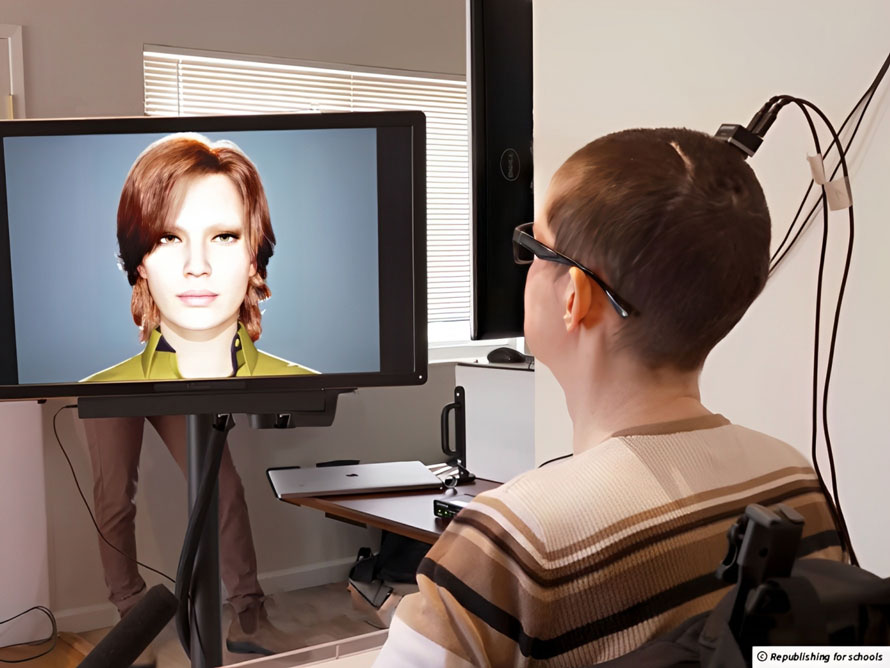Would it be great to read people’s thoughts? An extraordinary new experiment has let a stroke victim speak again. Mind reading technology could soon follow.
Brain chip turns thoughts into speech
 Thoughts to words: Ann Johnson sits face to face with her digital avatar, through which she can speak out loud via a brain-chip implant.
Thoughts to words: Ann Johnson sits face to face with her digital avatar, through which she can speak out loud via a brain-chip implant. Glossary
Stroke - A medical emergency that occurs when the blood supply to a part of the brain is cut off. They can cause lasting brain damage if not treated quickly.
Aphasia - A communication disorder that makes it difficult to speak.
Diagnosis - The process of identifying a condition, injury or disease by looking for the signs and symptoms of that condition.

